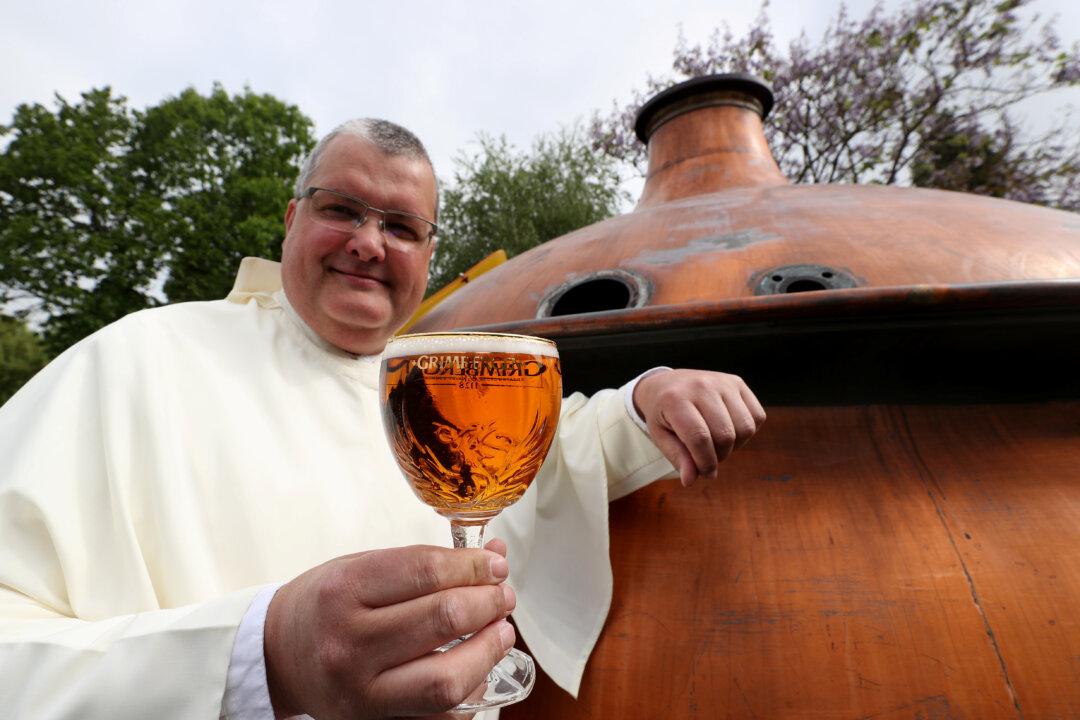GRIMBERGEN, Belgium—Belgian monks at the Grimbergen abbey are on the verge of brewing beer again after a break of more than 200 years.
The abbey, whose emblem is a phoenix with the Latin motto “Ardet nec consumitur,” meaning “Burned but not destroyed,” was ransacked and had its brewery smashed in 1795 by French troops.






